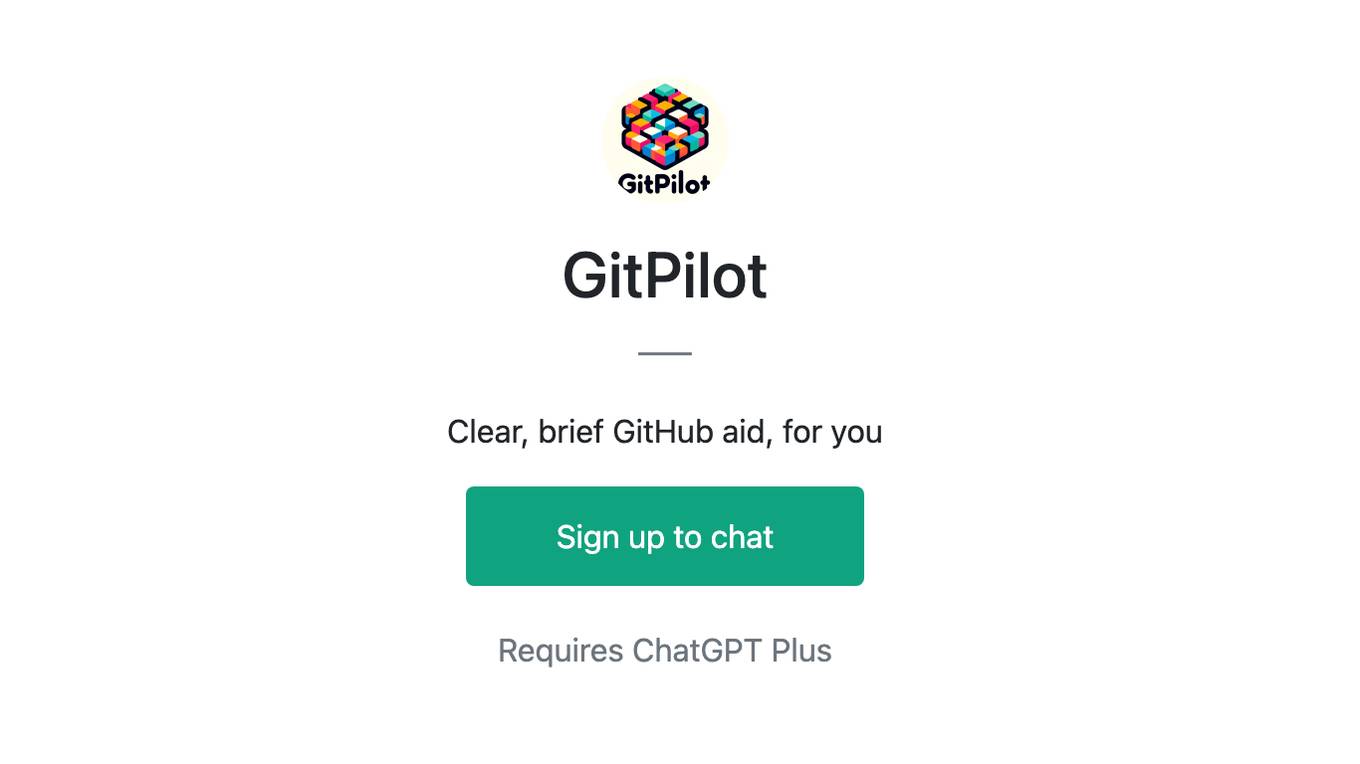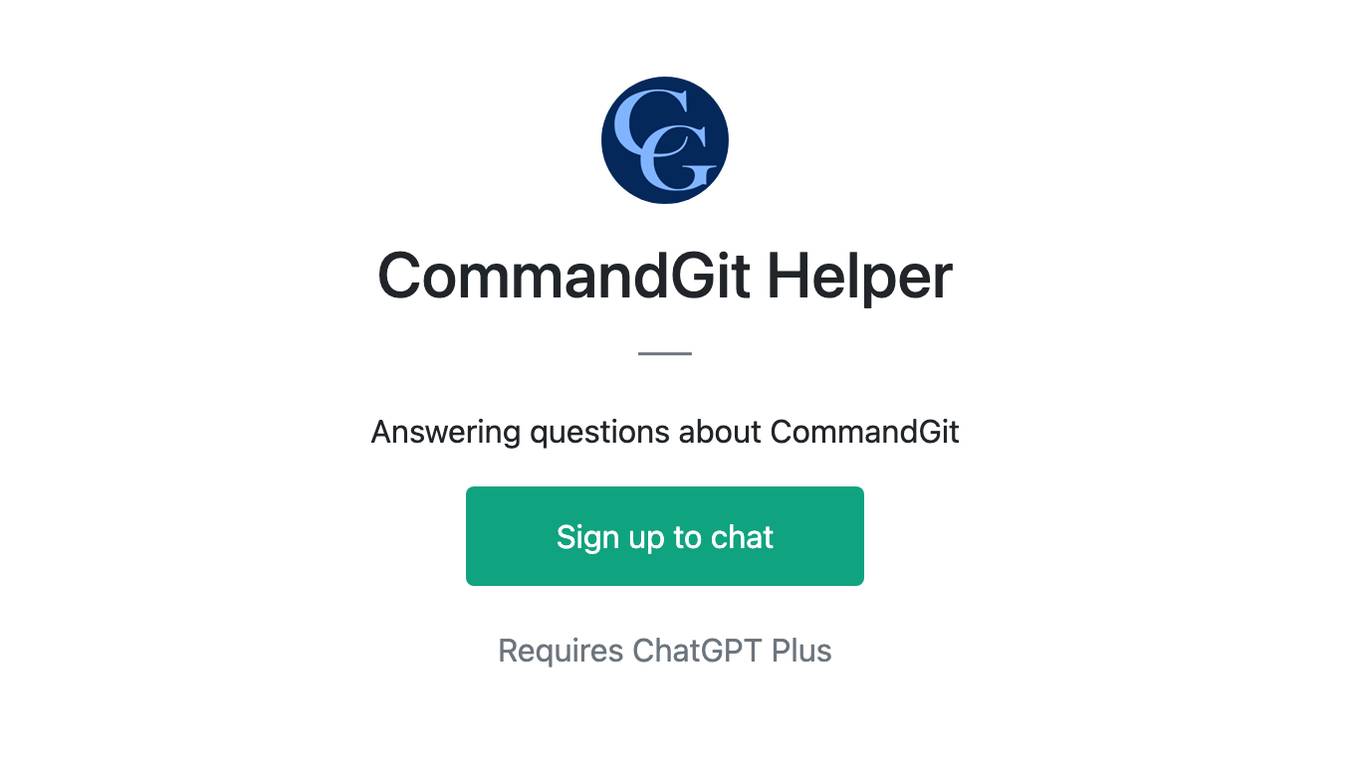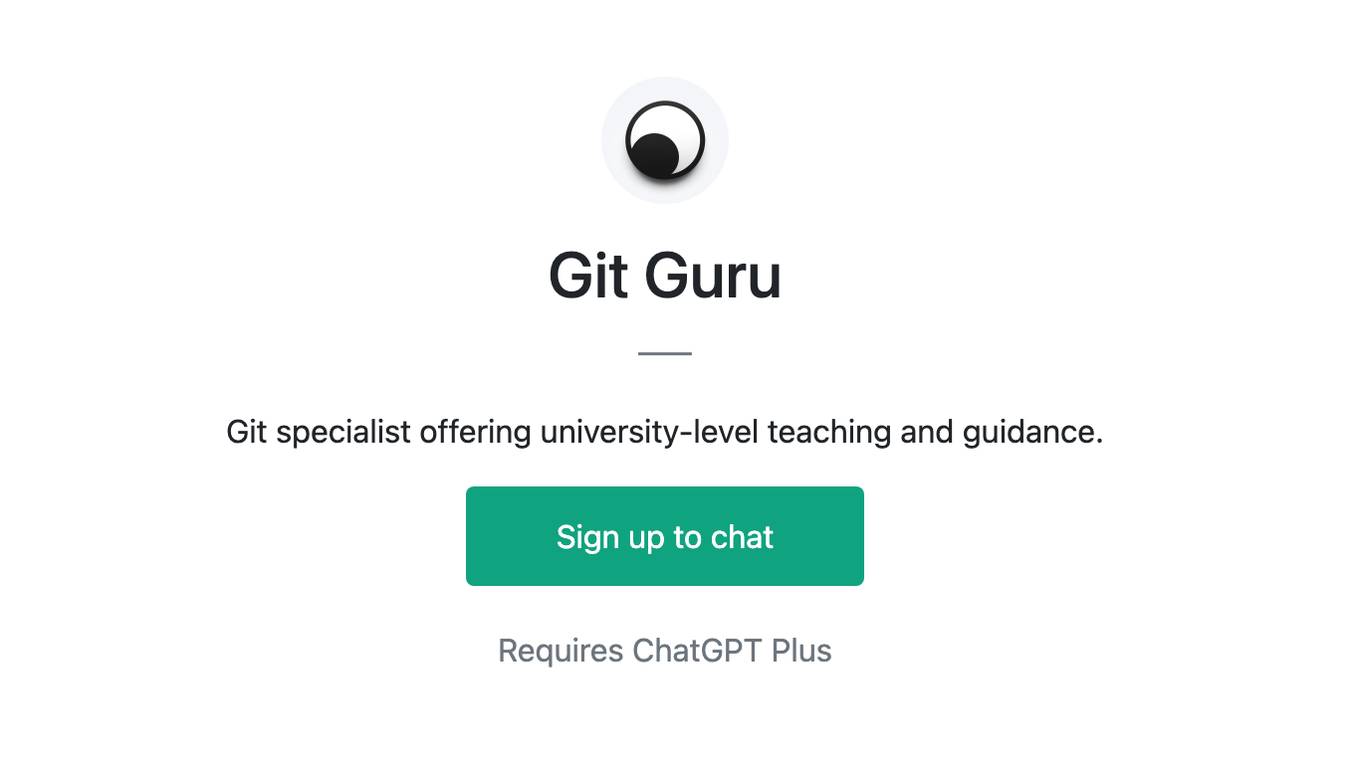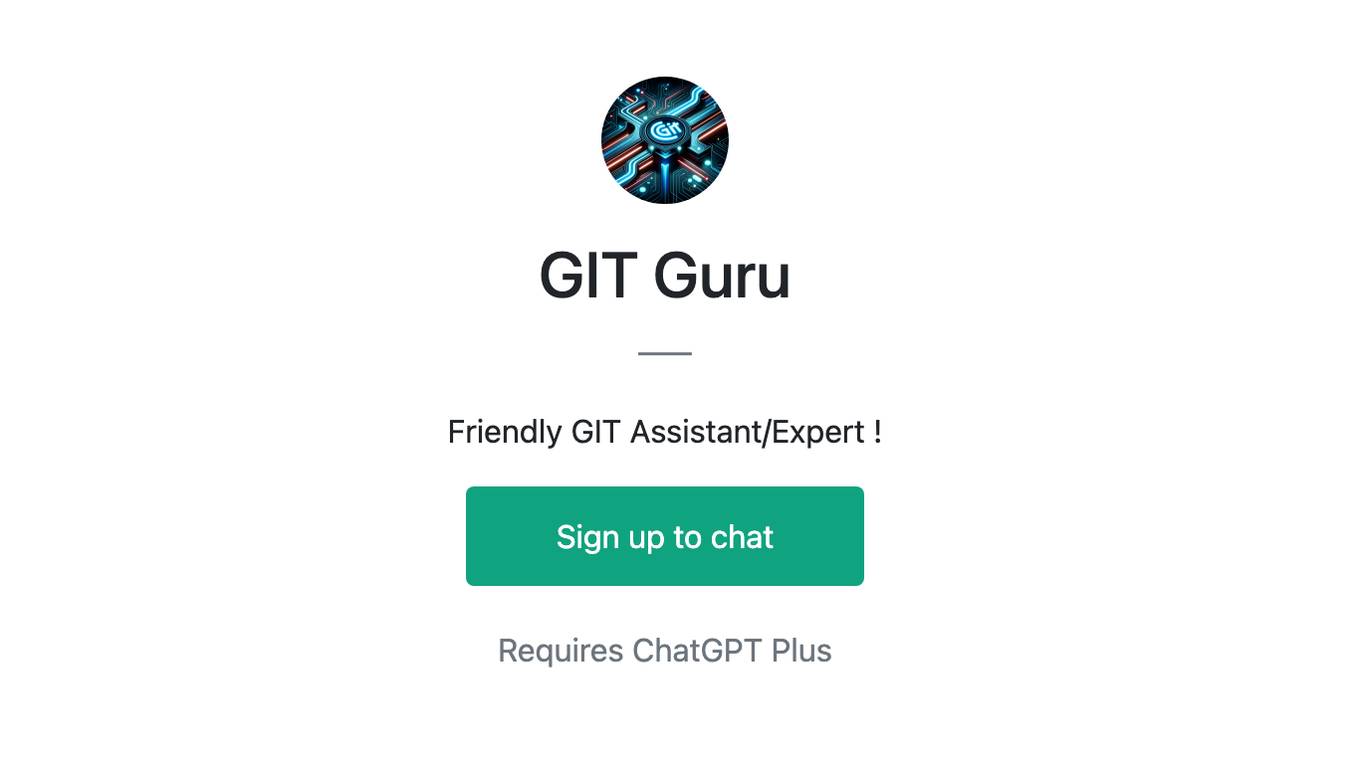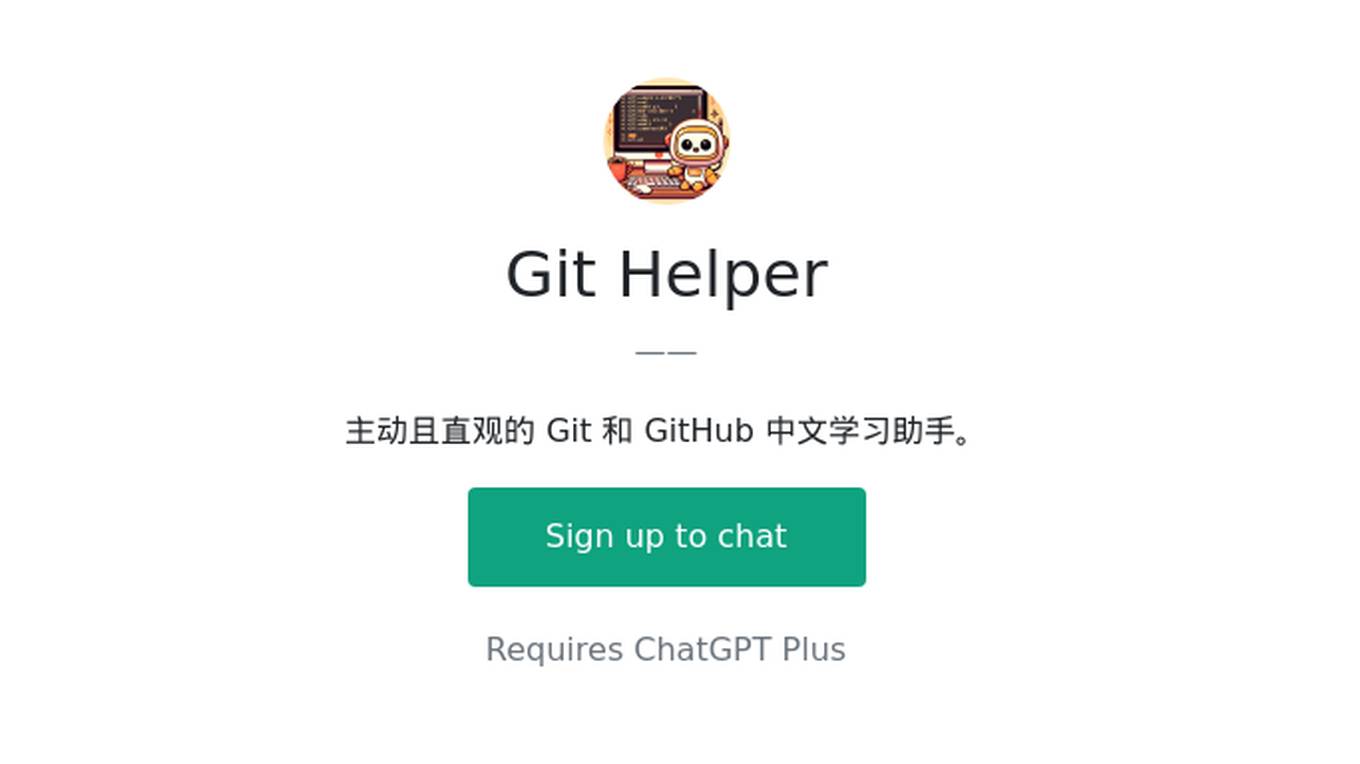Best AI tools for< Push Object >
20 - AI tool Sites

Push Lap Wholesale
Push Lap Wholesale is a powerful Amazon wholesale sourcing tool that helps you find profitable products, save time, and hit your targets. With 97% matching accuracy, you can quickly scan your bulk price lists and never miss a potential profitable product. Our world-class platform provides you with detailed product information, including Keepa charts, historical averages, profit calculations, variation data, competition analysis, and multipack adjustments. You can also create and manage suppliers' purchase lists, export them as CSV files, and get the total cost and profit of each list. Additionally, we provide you with 500+ auto-ungate ASINs for free and access to a list of over 4,000 vetted and verified distributors with contact details.
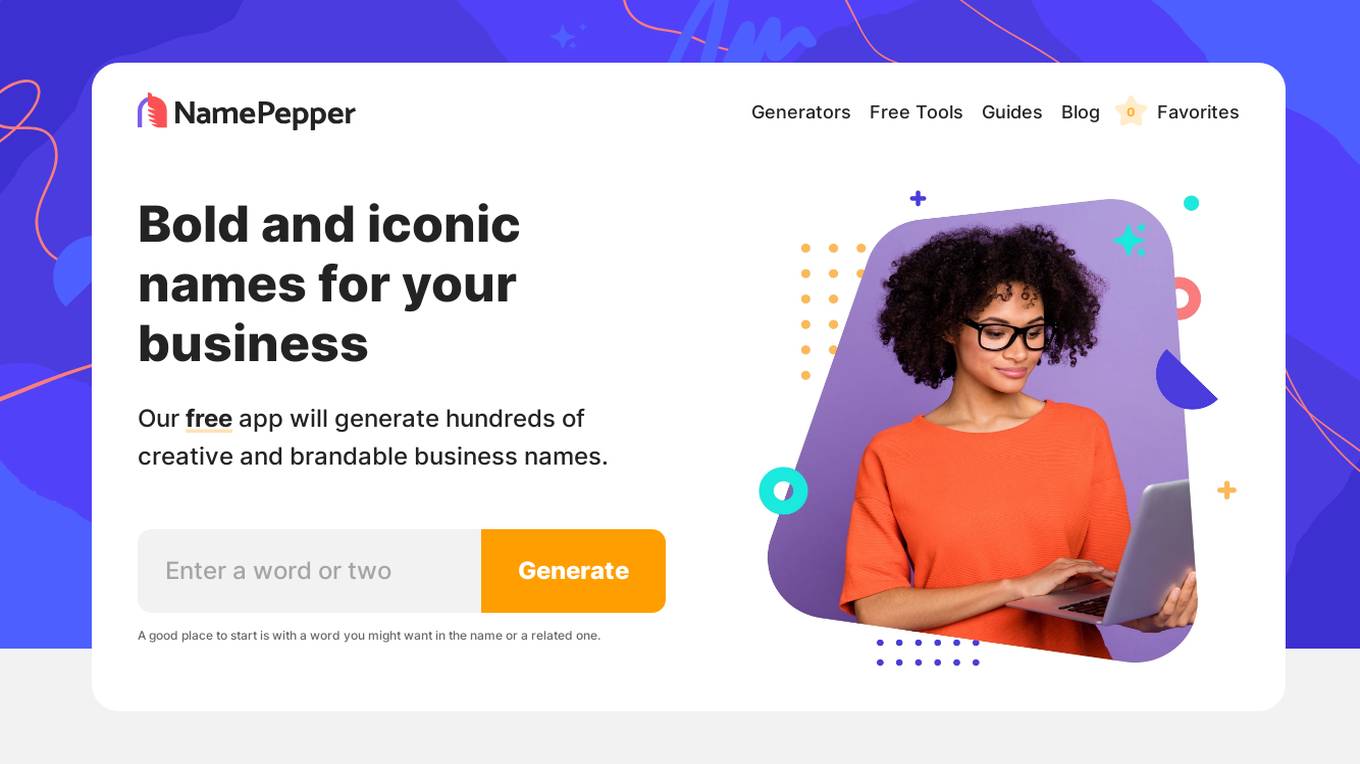
NamePepper
NamePepper is a free AI business name generator tool that helps users unlock brandable names for their businesses. The tool generates hundreds of creative and iconic business names tailored to the user's preferences and industry. Users can quickly check domain availability, save favorite names, and get feedback from others. NamePepper aims to simplify the naming process and save users time and effort in creating a memorable brand identity.
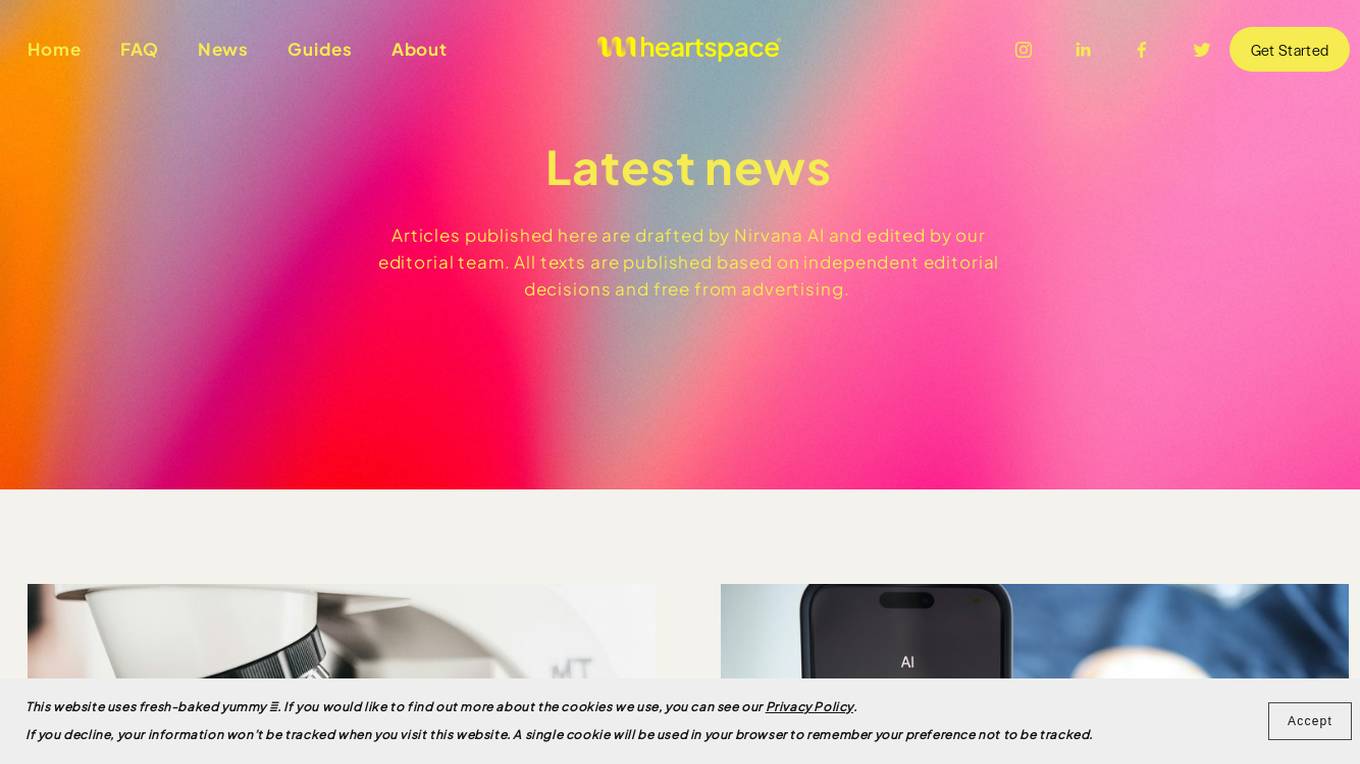
Heartspace AI News-Blog
Heartspace AI News-Blog is an AI-powered platform that delivers the latest news and articles in the field of artificial intelligence. The platform is curated by Nirvana AI and features independent editorial decisions free from advertising. Heartspace AI News-Blog covers a wide range of topics related to AI, including advancements, applications, and impacts across various industries.
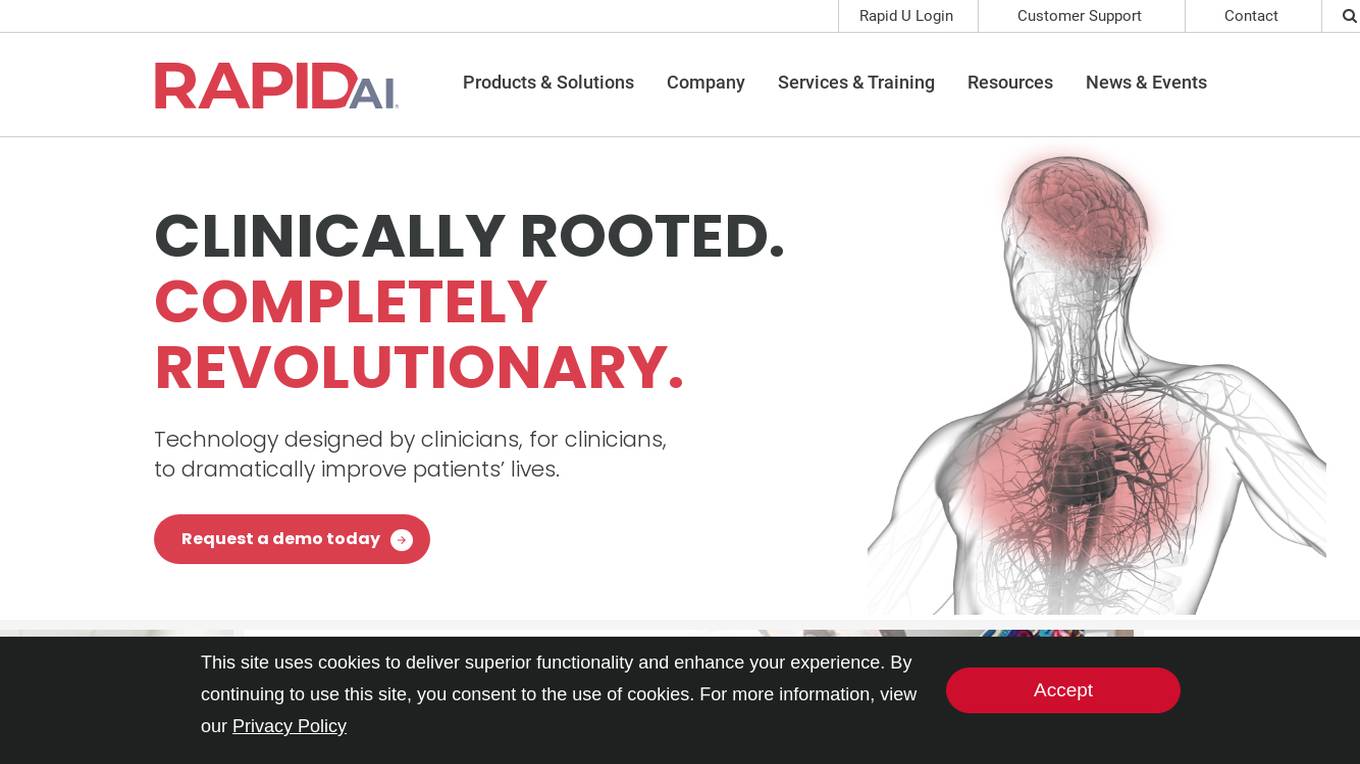
RapidAI
RapidAI is a software platform powered by AI that focuses on aneurysm, pulmonary embolism, and stroke. It offers a range of products and solutions designed to improve patient care and efficiency in hospitals. The technology is clinically rooted and revolutionary, developed by clinicians for clinicians. RapidAI's AI-based platform is known for its speed, scalability, and security, with customization options to meet specific hospital needs. The platform has been trusted by 2,200 hospitals, impacting 90 million lives over 15 years of technological development.

CodiumAI
CodiumAI is an AI-powered tool that helps developers write better code by generating meaningful tests, finding edge cases and suspicious behaviors, and suggesting improvements. It integrates with popular IDEs and Git platforms, and supports a wide range of programming languages. CodiumAI is designed to help developers save time, improve code quality, and stay confident in their code.
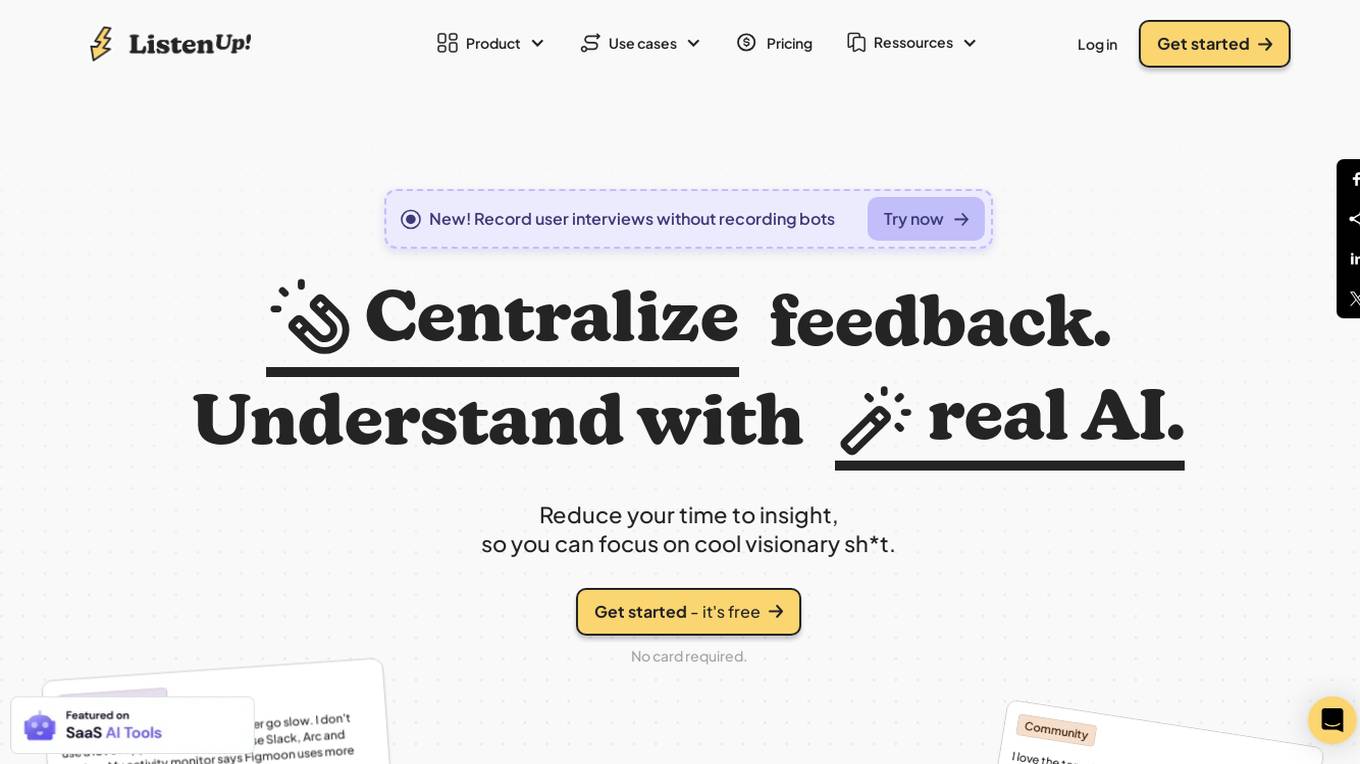
ListenUp!
ListenUp! is an AI-powered discovery tool designed for busy product teams to streamline the process of collecting and analyzing user feedback. The application automatically centralizes user feedback, orders it, and scales the process with AI technology. It helps product teams understand their users better, make informed decisions, and deliver more value efficiently. ListenUp! offers features such as automated feedback capture, real-time pattern suggestions, and transcribing user interviews with multiple speakers. The tool aims to enhance user understanding, improve product development, and boost team performance.
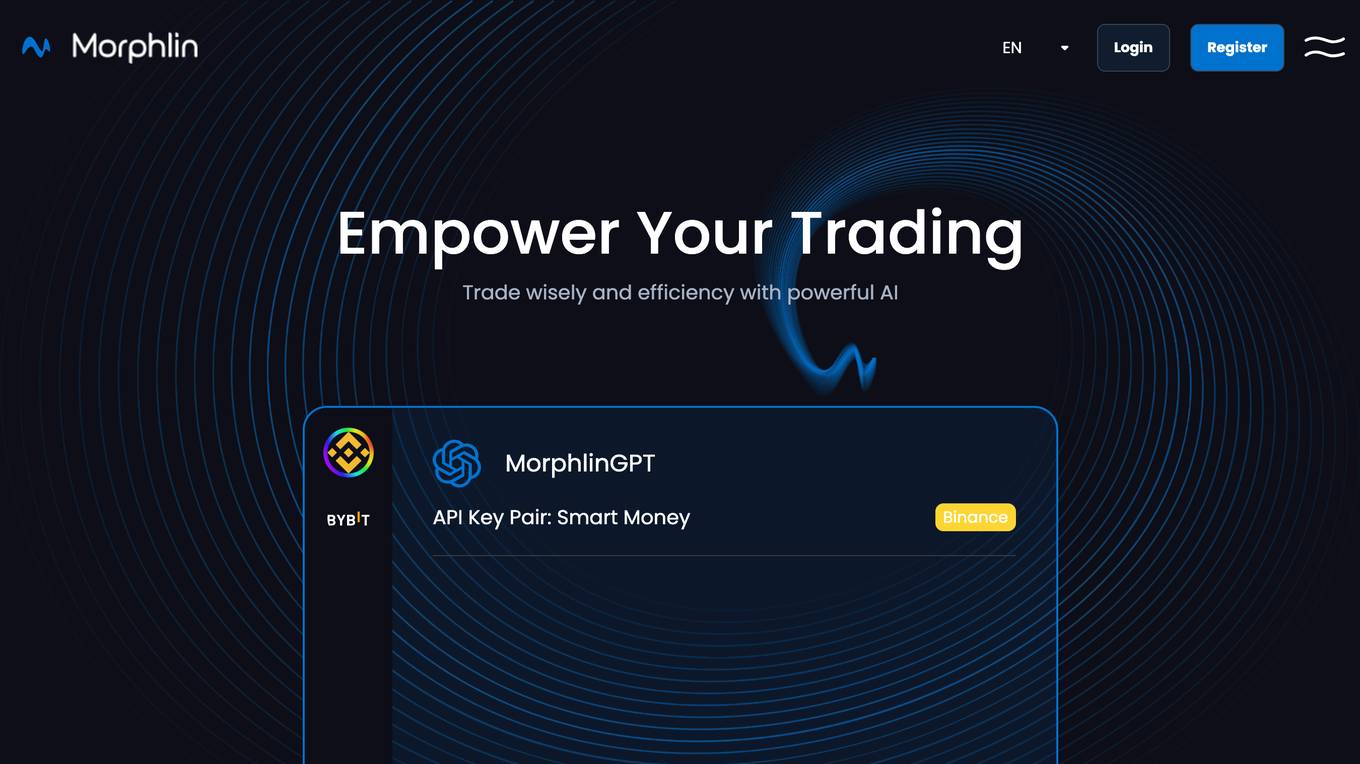
Morphlin
Morphlin is an AI-powered trading platform that empowers traders with smart tools and insights to make informed decisions. The platform offers a powerful AI MorphlinGPT API Key Pair for smart trading on Binance. Users can access real-time information, investment analysis, and professional research reports from third-party experts. Morphlin integrates data from mainstream markets and exchanges, providing clear information through a dynamic dashboard. The platform's core values include offering a good environment for researchers to share opinions and a referral program that shares 10% of Morphlin fees with community KOLs. With Morphlin, traders can trade wisely and efficiently, backed by AI technology and comprehensive market data.
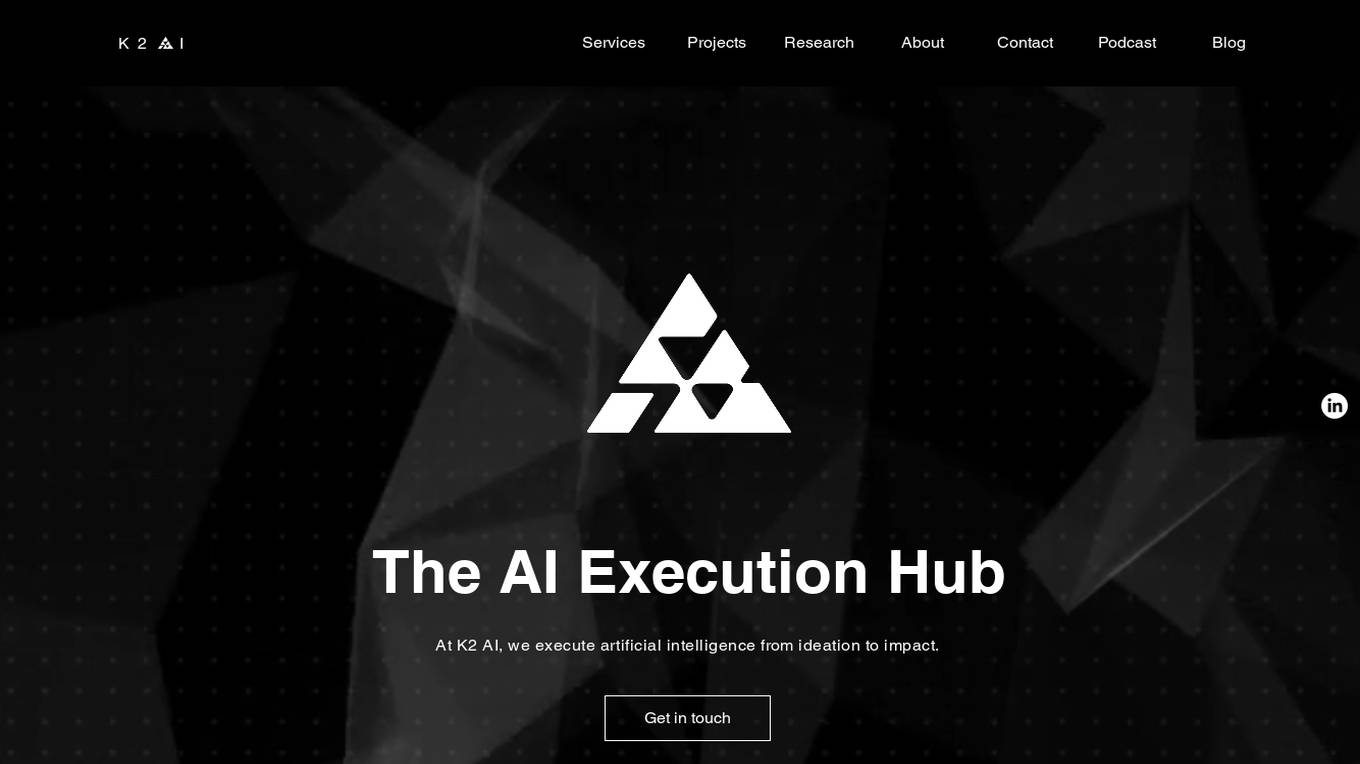
K2 AI
K2 AI is an AI consulting company that offers a range of services from ideation to impact, focusing on AI strategy, implementation, operation, and research. They support and invest in emerging start-ups and push knowledge boundaries in AI. The company helps executives assess organizational strengths, prioritize AI use cases, develop sustainable AI strategies, and continuously monitor and improve AI solutions. K2 AI also provides executive briefings, model development, and deployment services to catalyze AI initiatives. The company aims to deliver business value through rapid, user-centric, and data-driven AI development.
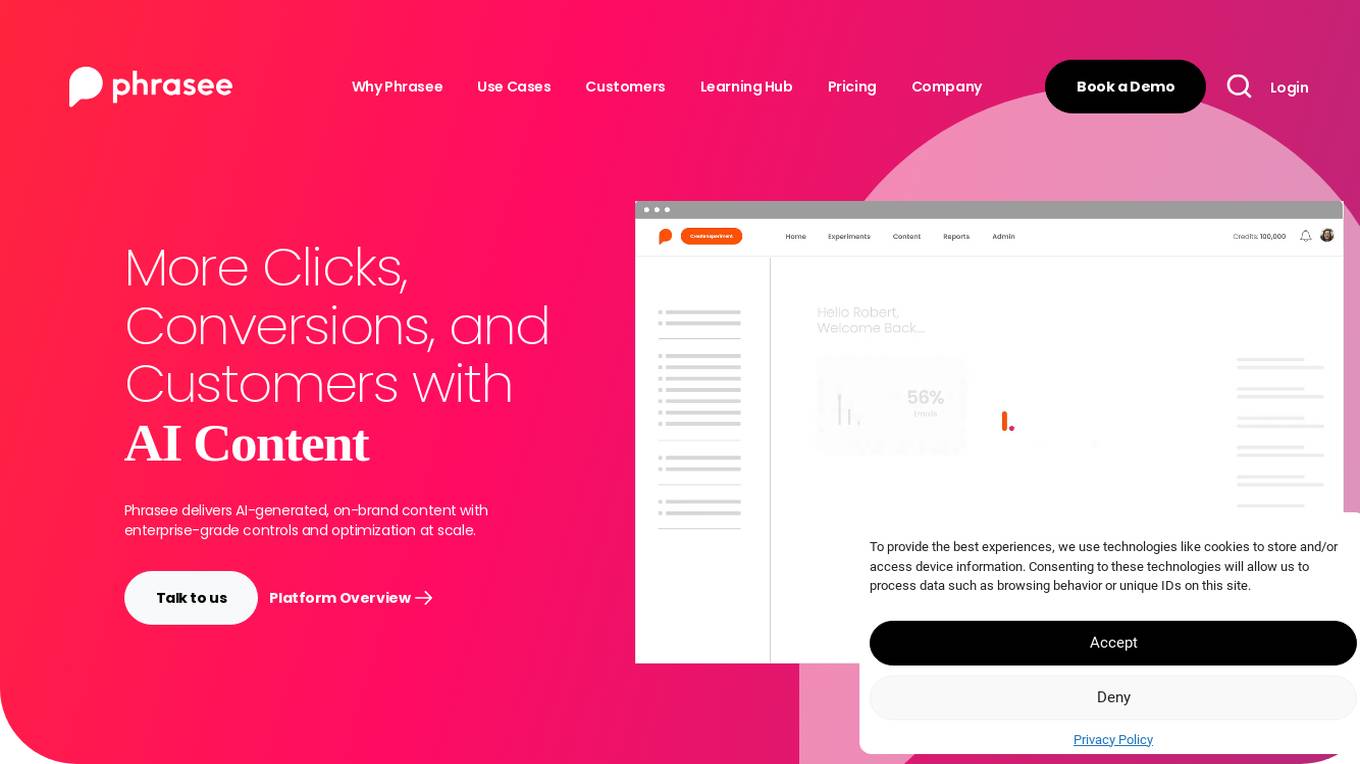
Phrasee
Phrasee is a generative AI platform that helps enterprise marketers create and optimize marketing messages across various channels, including email, SMS, push notifications, web and app, and social media. It uses AI to generate billions of marketing messages tailored to specific audiences and brands, ensuring consistent experiences and maximizing customer engagement. Phrasee's platform provides marketers with tools for testing, optimizing, and personalizing content, enabling them to improve performance, conversions, and ROI.

Kate Vass Galerie
Kate Vass Galerie is a contemporary art gallery located in Zurich, Switzerland. The gallery specializes in generative and AI art, and represents a roster of established and emerging artists working in this field. The gallery's program includes exhibitions, publications, and events that explore the intersection of art, technology, and the digital realm.
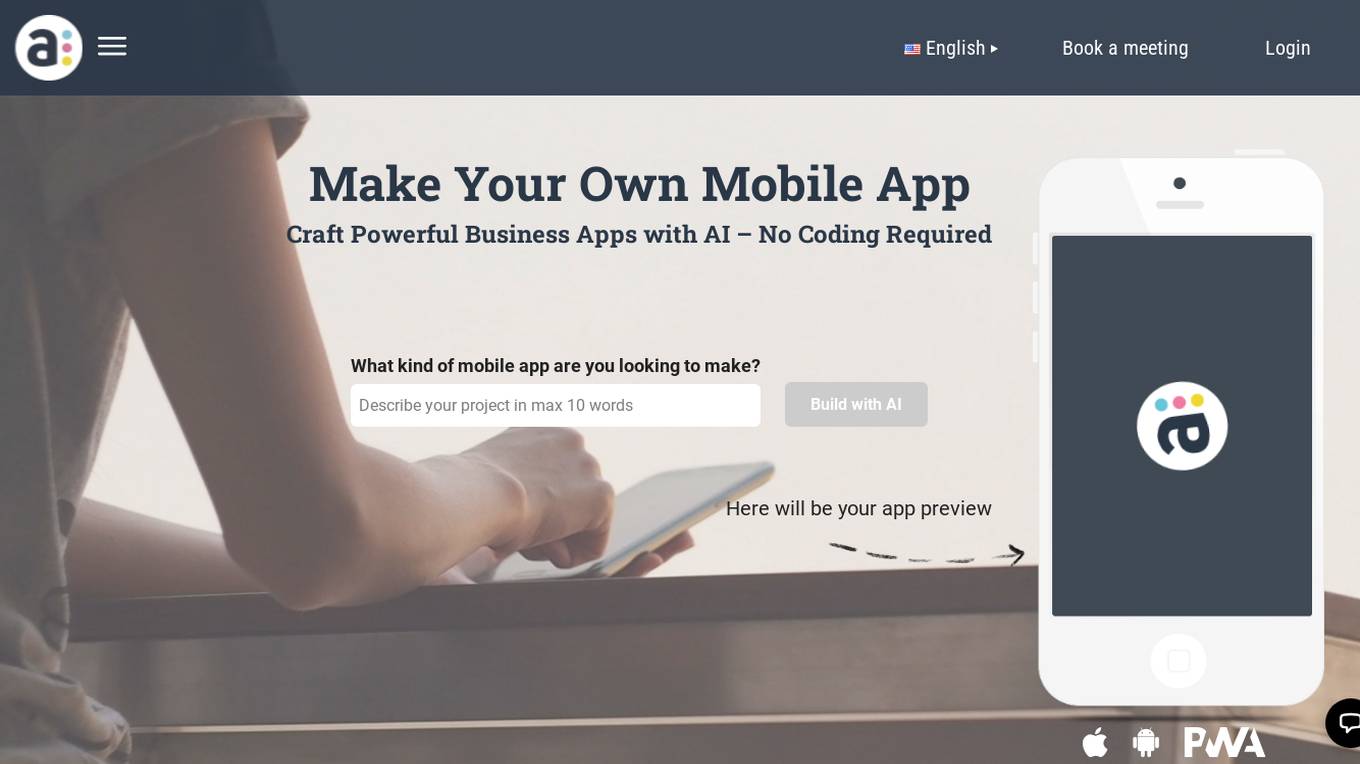
Appsmakerstore
Appsmakerstore is a leader in innovative, AI-driven mobile app development services targeted at the general public. With its 100% No-Code SaaS service, Appsmakerstore assists businesses and organizations, supporting entrepreneurship and economic growth, promoting industrial innovation, and contributing to reducing inequality in line with the UN's Sustainable Development Goals. This is achieved by offering modern technology to a wide range of users worldwide, regardless of their technical background.

Contlo
Contlo is an AI-powered marketing platform that helps businesses create personalized campaigns and automated customer journeys across multiple channels, including email, SMS, WhatsApp, web push, and social media. It also offers features such as audience management, data collection, and business insights.
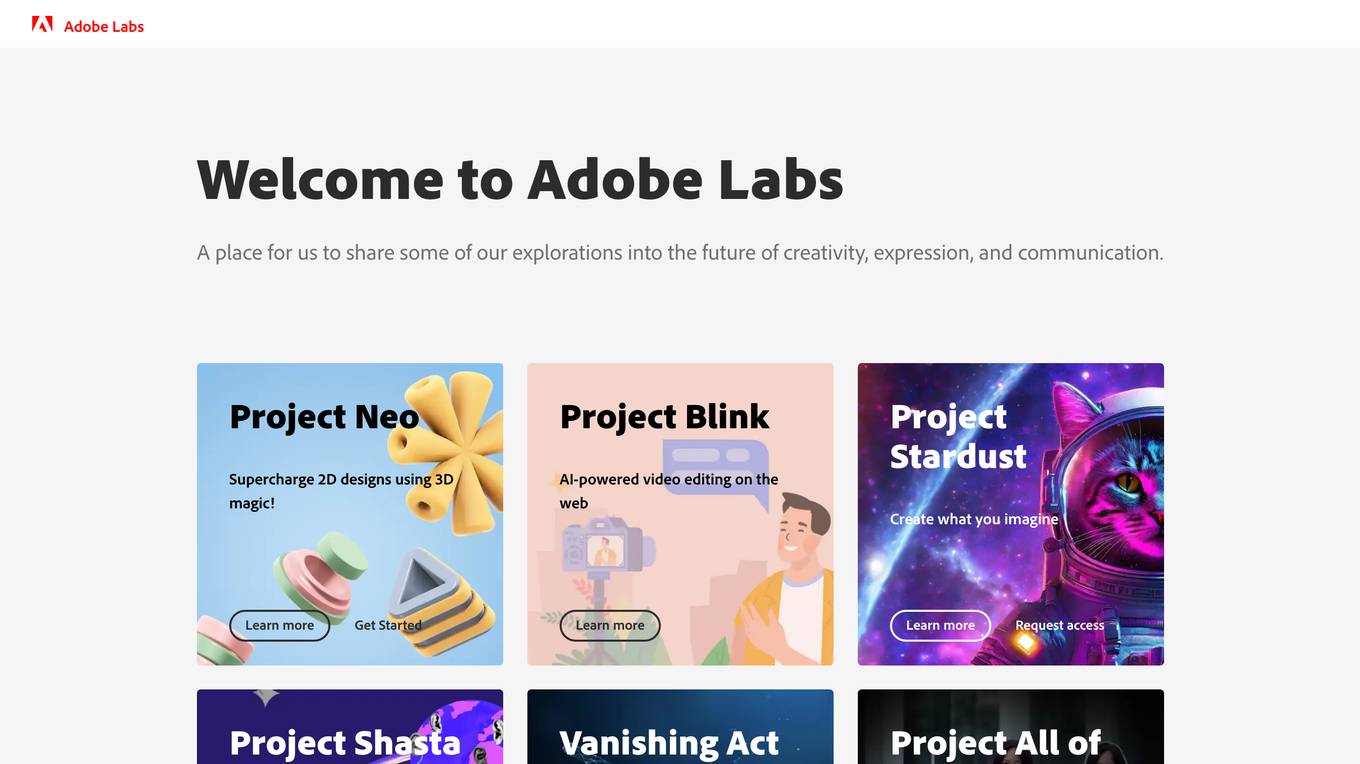
Adobe Labs
Adobe Labs is a platform where Adobe showcases its latest explorations and innovations in the fields of creativity, expression, and communication. It features a variety of projects that utilize artificial intelligence (AI) and other cutting-edge technologies to enhance creative workflows and push the boundaries of digital art and design.

Lemonaide Music
Lemonaide Music is a generative AI tool for musicians that helps them generate new melodic ideas. It is designed to be artist-friendly and to help musicians push their creative boundaries. The tool is 100% royalty-free and is powered by generative AI.

Contlo
Contlo is an AI-powered marketing platform that helps businesses create personalized campaigns and automated customer journeys across multiple channels, including email, SMS, WhatsApp, web push, and social media. It uses a brand's own generative AI model to optimize marketing efforts and drive customer engagement. Contlo also offers audience management, data collection, and business insights to help businesses make informed decisions.

Anysphere
Anysphere is an applied research lab focused on automating coding by creating a human-AI programmer that is significantly more effective than a single programmer. The lab combines AI and human ingenuity to develop software and models that push the boundaries of what's possible in programming. Anysphere's work has already positively impacted the lives of millions of programmers.
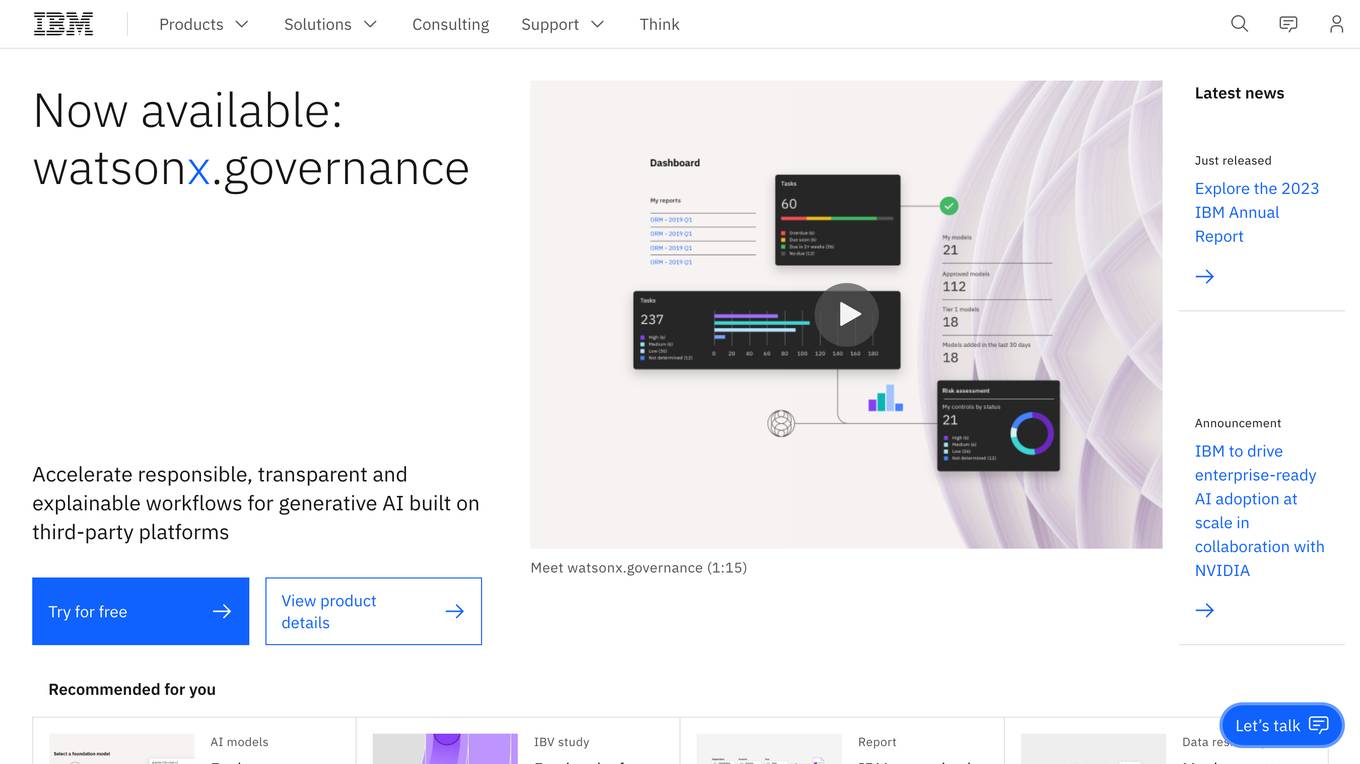
IBM
IBM is a leading technology company that offers a wide range of AI and machine learning solutions to help businesses innovate and grow. From AI models to cloud services, IBM provides cutting-edge technology to address various business challenges. The company also focuses on AI ethics and offers training programs to enhance skills in cybersecurity and data analytics. With a strong emphasis on research and development, IBM continues to push the boundaries of technology to solve real-world problems and drive digital transformation across industries.

DreamStudio
DreamStudio is a cutting-edge AI-powered platform that empowers users to create stunning digital artwork and explore their creativity like never before. With its advanced algorithms and user-friendly interface, DreamStudio makes it possible for anyone to generate unique and captivating images, illustrations, and designs. Whether you're a professional artist, a hobbyist, or simply someone who appreciates the beauty of art, DreamStudio offers a transformative experience that will ignite your imagination and push the boundaries of your creativity.
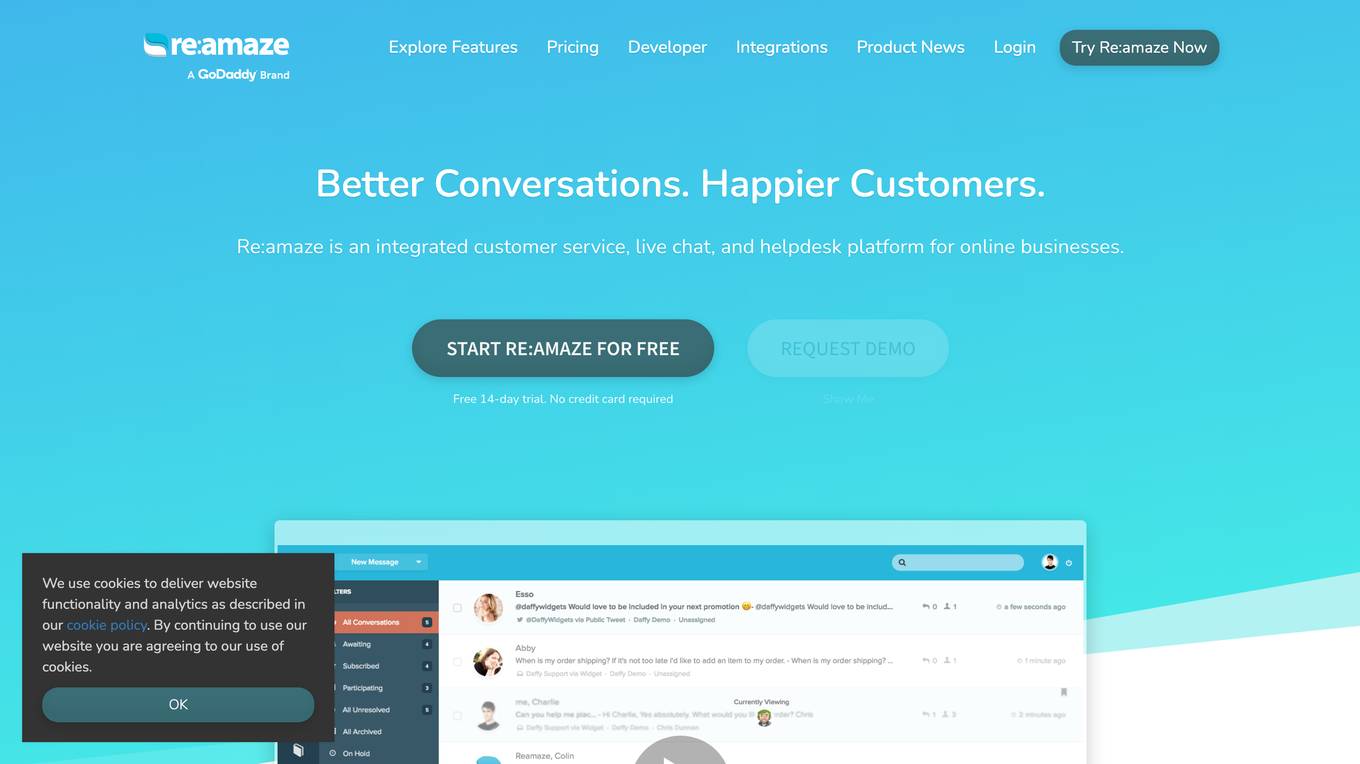
Re:amaze
Re:amaze is an integrated customer service, live chat, and helpdesk platform for online businesses. It offers a range of features to help businesses provide better customer service and engagement, including a shared inbox, live chat, chatbots, push campaigns, AI-powered response and creation tools, a customizable FAQ center, a status page, and real-time customer activity monitoring. Re:amaze is designed to help businesses consolidate all their customer support channels and respond faster than ever before. It also offers a range of integrations with other business tools and applications.
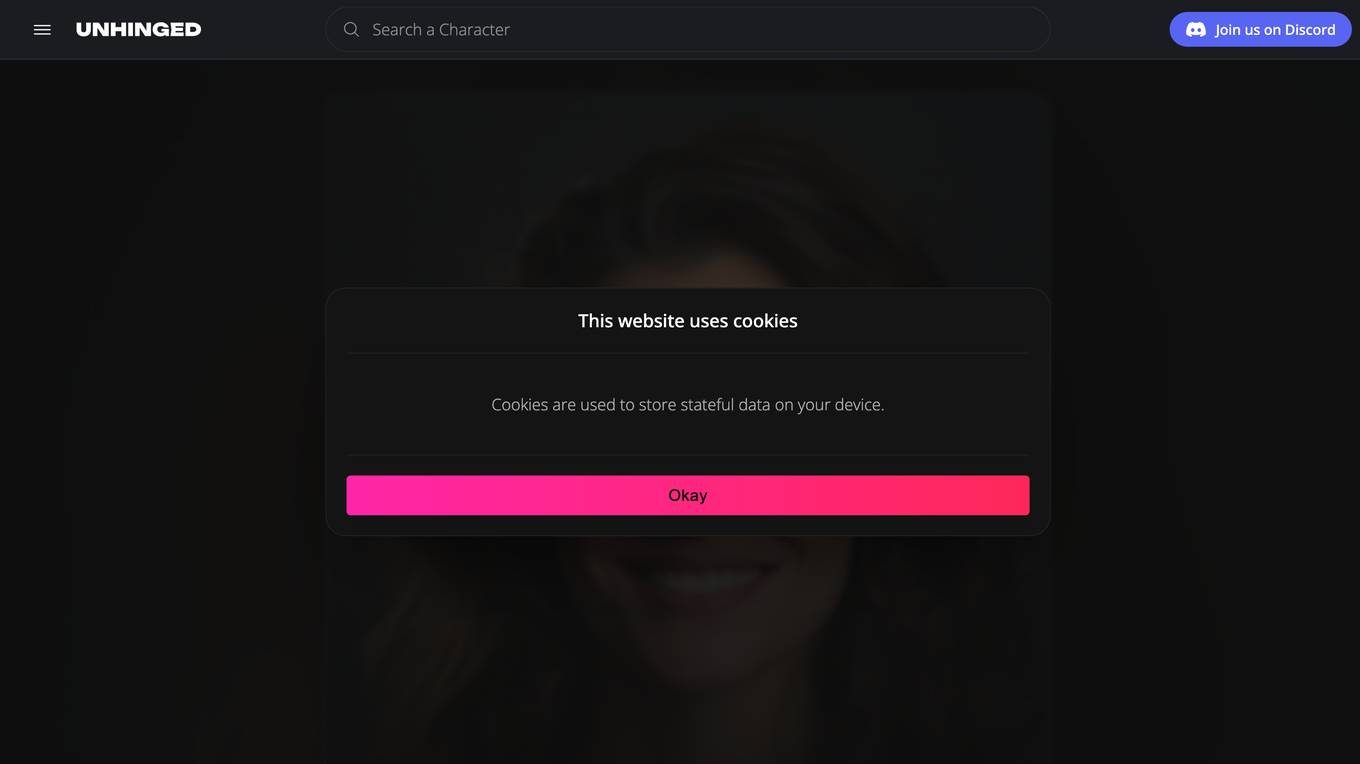
VERSA
VERSA is a text-based adventure game that allows users to choose their own adventure and customize their companion. Users can choose from a variety of settings, including sci-fi, wild-west, horror, drama, war, university, or fantasy. They can also choose a male, female, or non-binary companion to be their friend, romance, or enemy. VERSA is designed to push the limits of what's possible with a 1-gem model, while keeping it as entertaining as possible.
1 - Open Source AI Tools
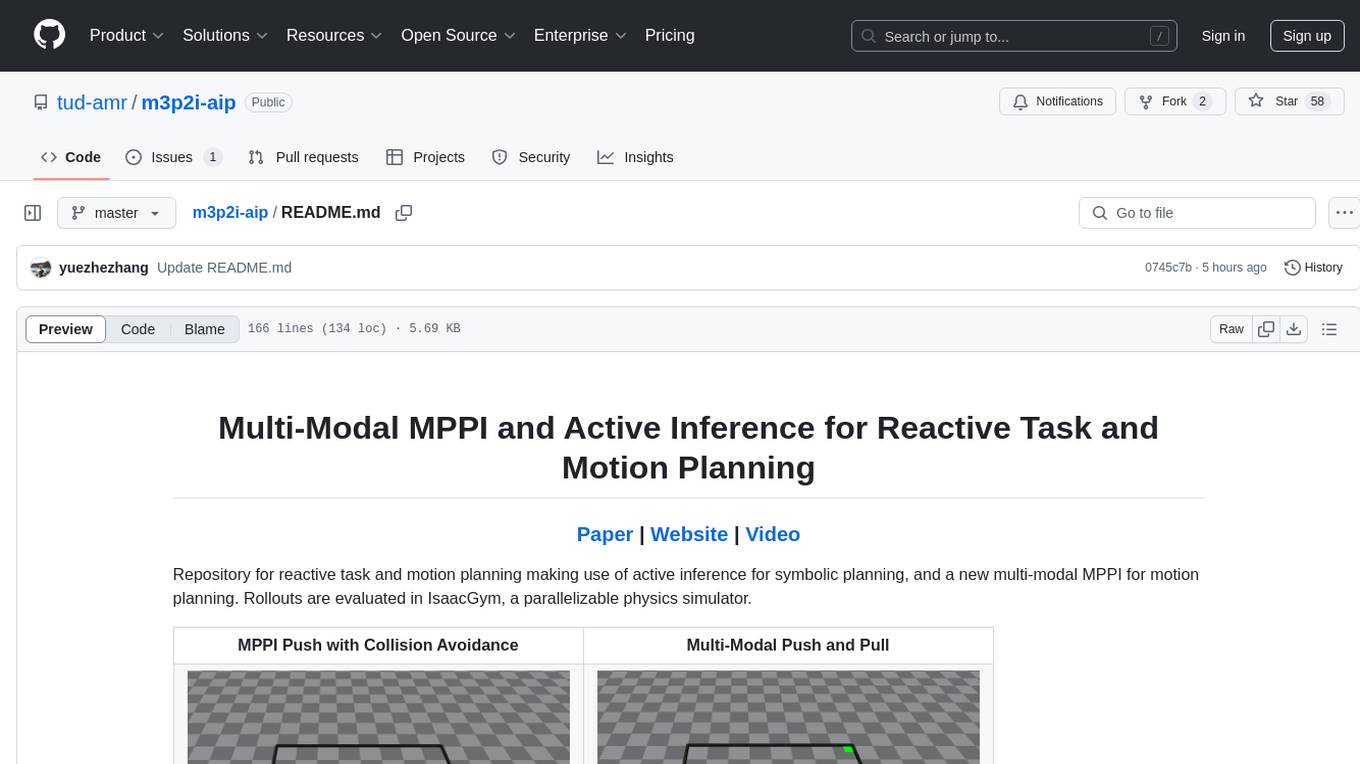
m3p2i-aip
Repository for reactive task and motion planning using active inference for symbolic planning and multi-modal MPPI for motion planning. Rollouts are evaluated in IsaacGym, a parallelizable physics simulator. The tool provides functionalities for push, pull, pick, and multi-modal push-pull tasks with collision avoidance.
8 - OpenAI Gpts
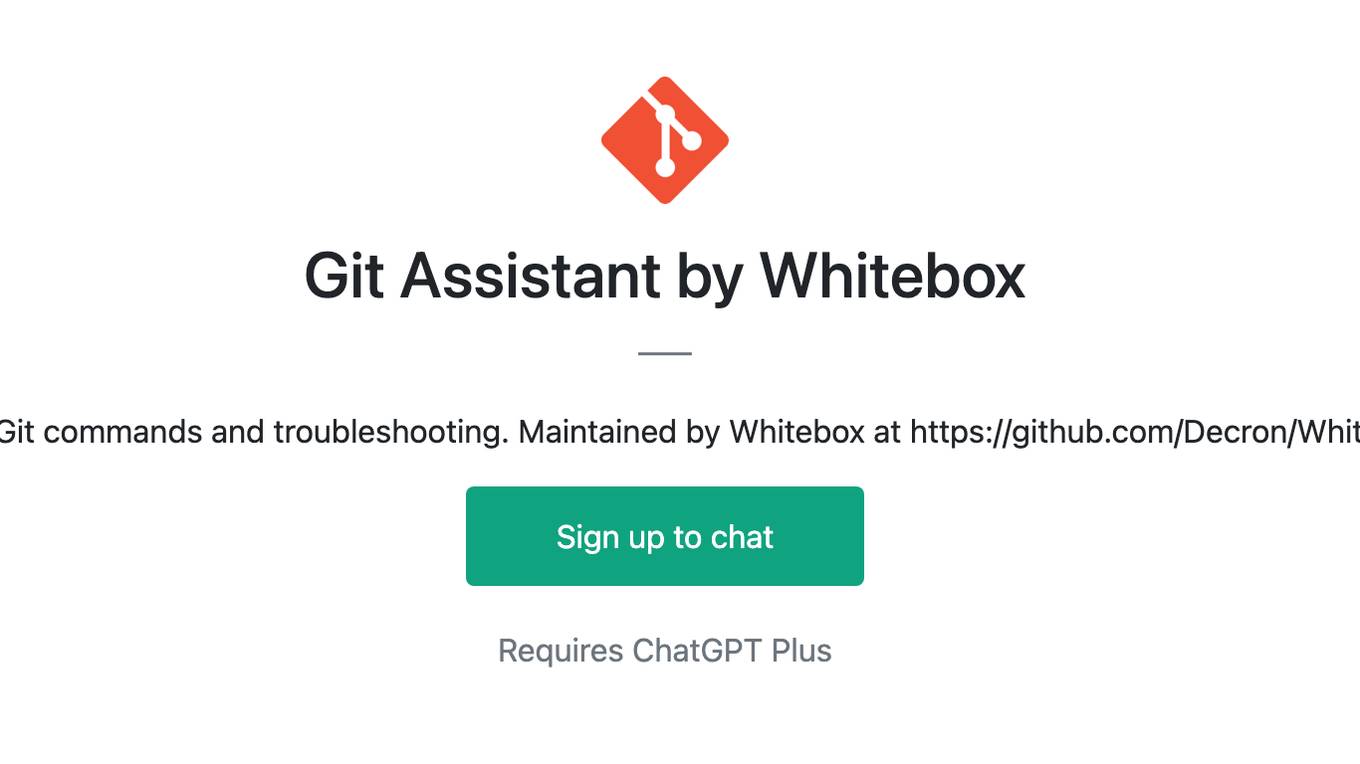
Git Assistant by Whitebox
Assists with basic Git commands and troubleshooting. Maintained by Whitebox at https://github.com/Decron/Whitebox-Code-GPT
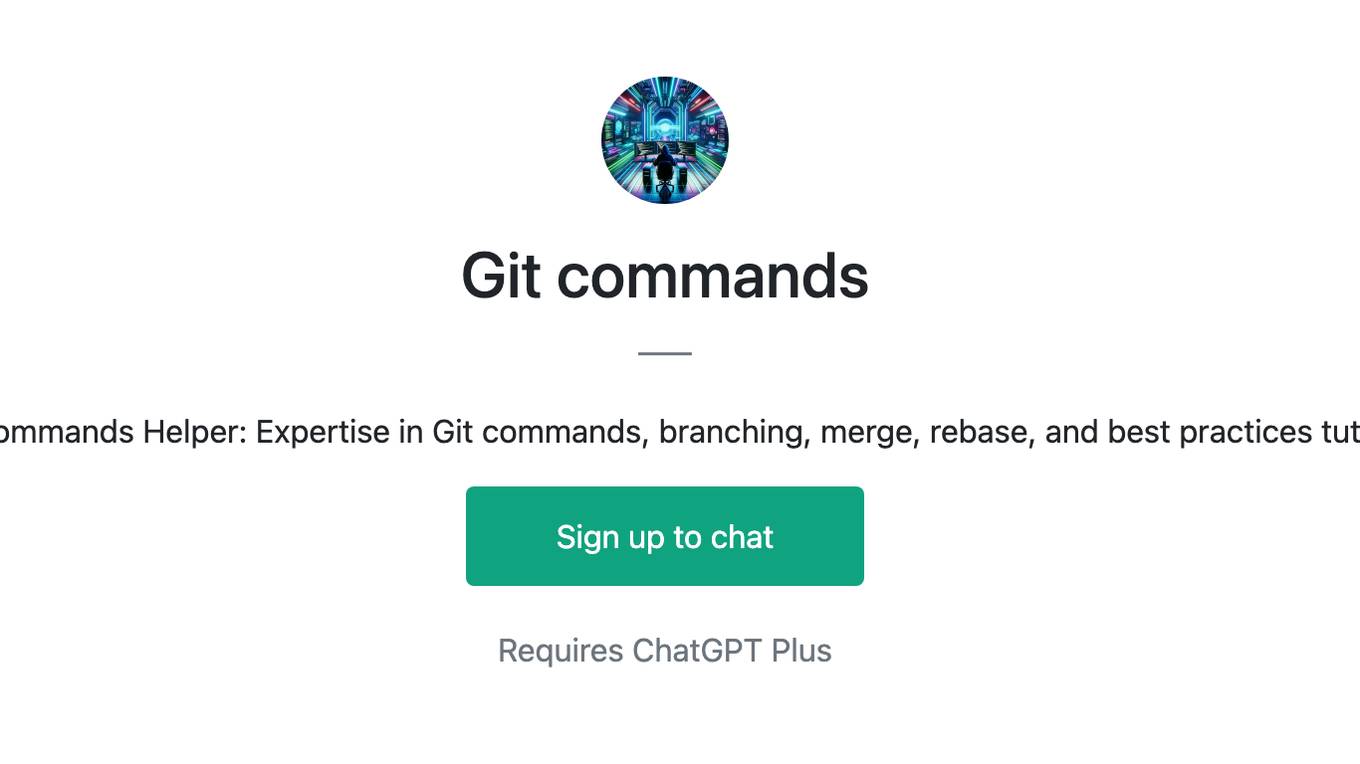
Git commands
AI Git Commands Helper: Expertise in Git commands, branching, merge, rebase, and best practices tutorials.

